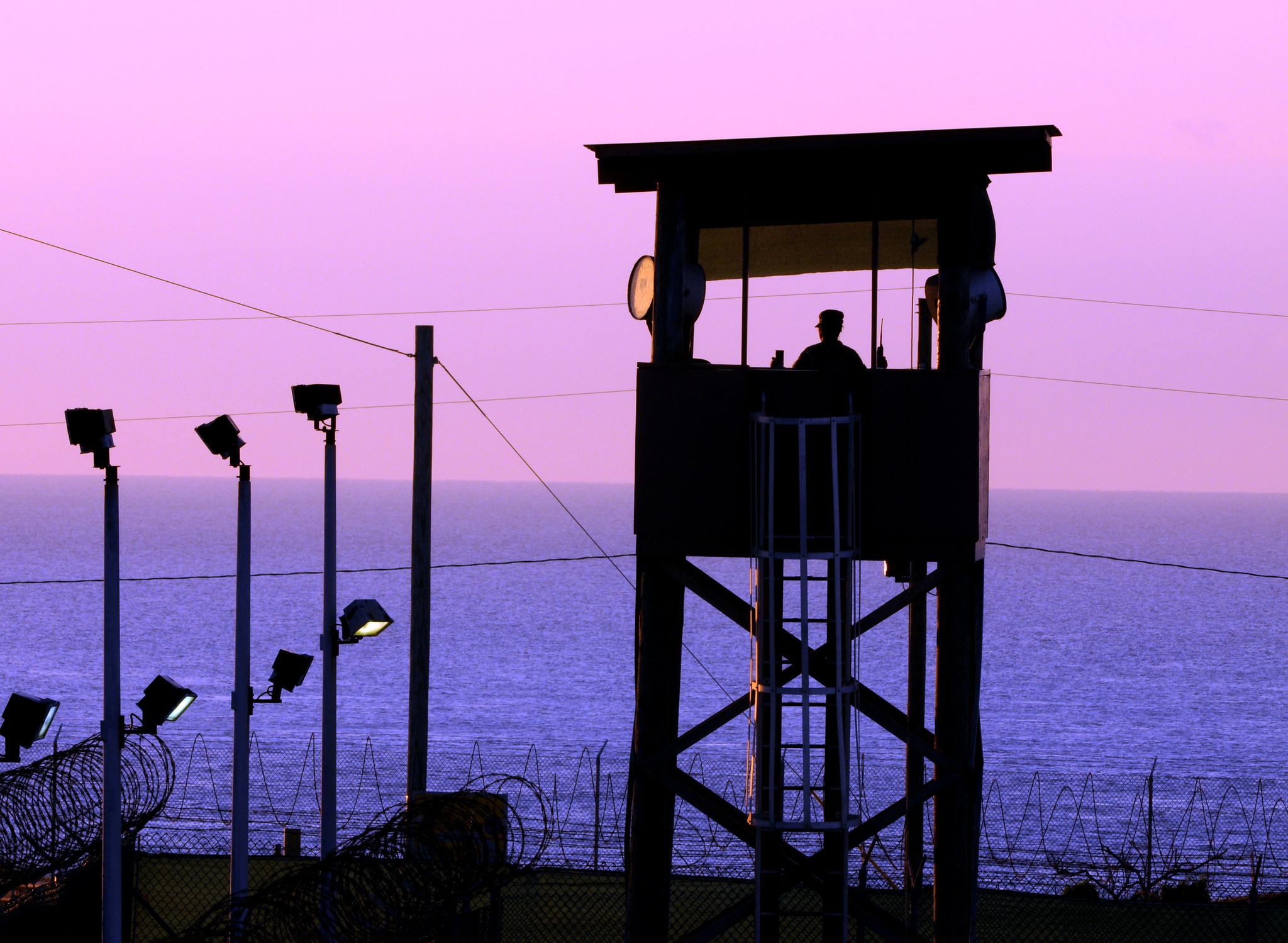On Monday's Argument in Al-Bahlul
Just as performers sometimes single out one member of the audience to reach, advocates in an en banc rehearing at a federal appeals court don’t always expect to win over a majority. The government showed a couple of years ago in Ashcroft v. al-Kidd (finding that the Attorney General had qualified immunity in a lawsuit by a material witness detained in a terrorism investigation) that persuading a judge or judges in an en banc rehearing to write a well-crafted dissent can pave the way for a victory at the Supreme Court.
Published by The Lawfare Institute
in Cooperation With

Just as performers sometimes single out one member of the audience to reach, advocates in an en banc rehearing at a federal appeals court don’t always expect to win over a majority. The government showed a couple of years ago in Ashcroft v. al-Kidd (finding that the Attorney General had qualified immunity in a lawsuit by a material witness detained in a terrorism investigation) that persuading a judge or judges in an en banc rehearing to write a well-crafted dissent can pave the way for a victory at the Supreme Court. Although discerning judges’ ultimate views based on questions at an oral argument is an inherently risky undertaking, questions from Judge Janice Rogers Brown at Monday’s argument in al Bahlul v. United States may hint at a reprise of the al-Kidd pattern. Judge Brown’s questions were an intriguing departure from the binary pattern of much of the al Bahlul argument, analyzed with characteristic discernment by Wells and Raffaela. For much of the argument, al Bahlul’s lawyer Michel Paradis relied on Judge Kavanaugh’s opinion in Hamdan II holding that material support (and by extension, inchoate conspiracy) are not internationally accepted war crimes. DOJ’s Ian Heath Gershengorn parried with the government’s theory that a “US common law of war” can supplement or even supplant international law. Judge Brown’s questions challenged this binary pattern, hinting at a path to upholding al Bahlul’s conviction that would be consistent with international law. For example, Judge Brown asked whether the court could tie compliance with international law to a “functional” approach that hinged on the underlying conduct of the defendant pleaded and proved by the government. Al Bahlul, a propaganda aide to Osama bin Laden, acknowledged in a letter to senior Al Qaeda leader Ramzi bin al Shibh that he played a “role” in the 9/11 attacks by administering the bayat (Al Qaeda loyalty oath) to Mohammed Atta, the 9/11 plot’s ringleader in the United States, and Ziad al Jarrah, the pilot on Flight 93, which crashed in Pennsylvania. The government’s problem here, as Paradis noted, is that al Bahlul was charged with inchoate conspiracy involving mere agreement, not with conspiracy as a form of liability for a completed war crime such as the murder of civilians. As Lawfare readers know, Jim Schoettler and I submitted an amicus brief for ex-military lawyers, national security officials, and other experts in the field (including Ben) arguing that the label attached to the conduct mattered less than the conduct itself (see Steve’s comments, Kevin Jon Heller’s here, and my post in response). Our brief argued that despite the government’s formal charging decision, the pleadings, proof, and findings in the case were the functional equivalent of conspiracy as a form of liability for the murder of civilians on 9/11. Bolstering this functional theory, the government’s charging documents cited al Bahlul’s administration of the bayat as an overt act. Evidence against al Bahlul showed it was no mere coincidence that al Bahlul administered the bayat to two integral members of the 9/11 conspiracy. Testimony from FBI agent Ali Soufan demonstrated that al Bahlul had acted as a mentor and guide for Atta and al Jarrah, who lived with al Bahlul in Al Qaeda’s compound. In addition, the members of the military commission had specifically found that al Bahlul had administered the bayat. As our brief explained, the functional view is fair to the defendant, given the statements of al Bahlul at trial acknowledging his letter to bin al Shibh, with its description of al Bahlul’s role in the 9/11 plot. Judge Brown seemed to view the functional tie between the conspiracy charge and al Bahlul’s acknowledged role in the 9/11 attacks as providing a basis in international law for al Bahlul’s conviction. Judge Brown’s questions also suggested an appreciation for the Framers’ intent in drafting the Define and Punish Clause, which the Supreme Court has repeatedly cited as an important source of the power to designate crimes triable in military commissions. The Framers, as my recent article on al Bahlul and Hamdan II indicated, venerated international law. However, they also believed, as Madison noted in Federalist No. 42, that customary international law had “inexact boundaries” (to quote Judge Brown). Madison urged granting Congress a measure of deference in ascertaining where the border lies. In Ex parte Quirin, the Supreme Court cautioned against an unduly “meticulous” attempt by courts to fix those boundaries, when that attempt entailed second-guessing Congress. Justice Kennedy, in his Hamdan I concurrence, also stressed that Congress was better suited than the courts to the “sensitive task” of determining what gloss on international law best suited the nation’s global commitments. Indeed, DOJ’s Gershengorn had some of his best moments at the argument in making the case for deference to Congress, distinguishing that posture from the judicial free-lancing that the Court recently rejected in Kiobel. It’s too early to tell whether Judge Brown’s questions foreshadow an opinion delineating this approach. An opinion developing this analysis would be a salutary alternative to the binary pattern that drove much of Monday’s arguments. It could echo the dissenting en banc opinion in al Kidd that garnered the Supreme Court’s attention. If that were true, the government in al Bahlul could lose the battle, but win the war.


-final.png?sfvrsn=b70826ae_3)

